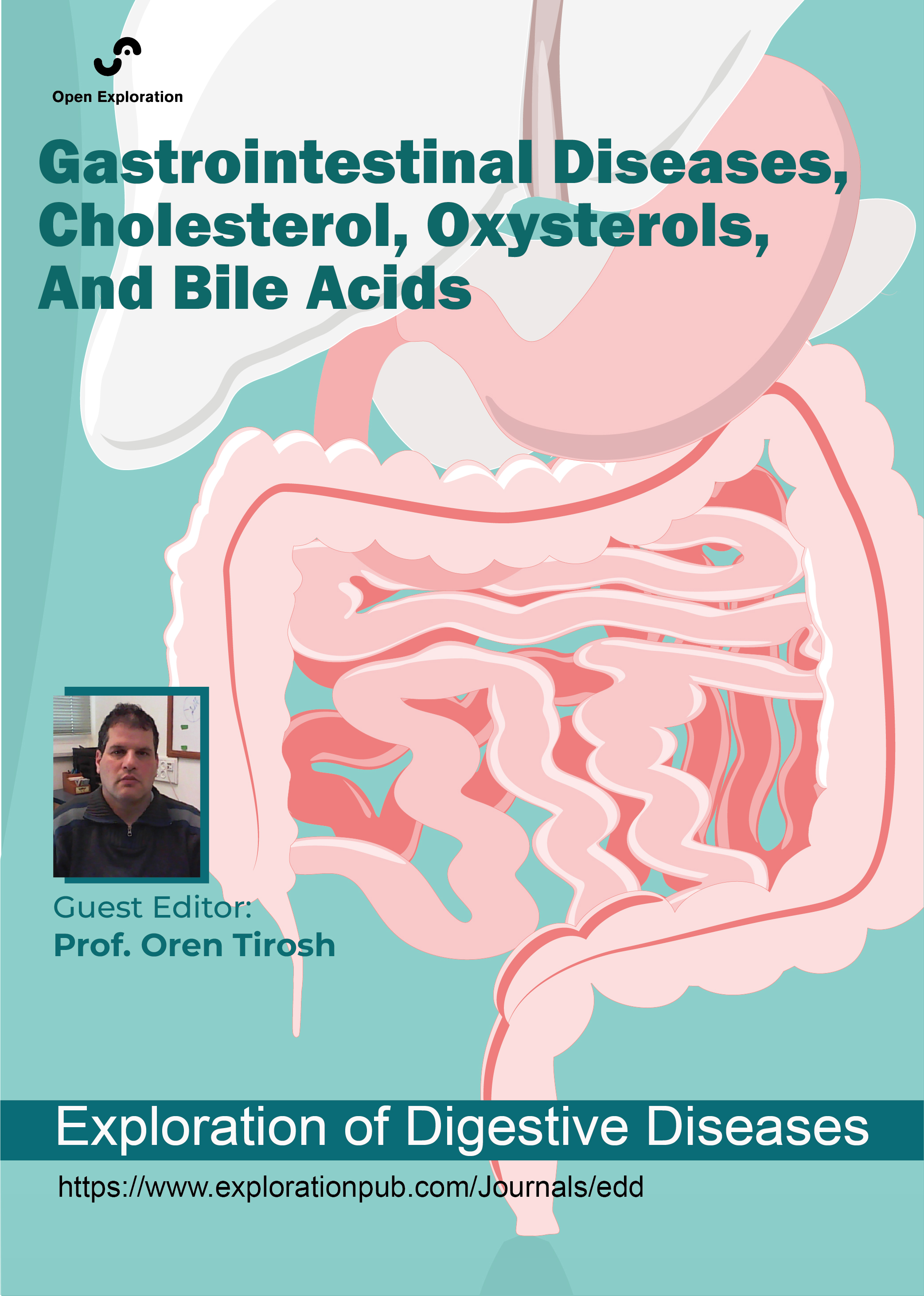
Gastrointestinal Diseases, Cholesterol, Oxysterols, and Bile Acids
Guest Editor
Prof. Oren Tirosh E-Mail
Professor of Nutritional Sciences. Head, Institute of Biochemistry, Food Science and Nutrition. The Robert H. Smith Faculty of Agriculture, Food and Environment. The Hebrew University of Jerusalem, Rehovot, Israel
Research Keywords: oxidative stress and metabolic diseases, NAFLD/NASH, hepatocytes cell death, redox signaling, cholesterol and bile acids biology
About the Special lssue
Cholesterol metabolism involves an intricate interplay with its metabolic partners – oxysterols and bile acids. These molecules play a vital role in the health of our digestive system and dictate the rhythm of both health and disease.
Cholesterol forms the building block for bile acids, which are synthesized in the liver and stored in the gallbladder. Upon the arrival of a meal, bile acids aid in the breakdown and absorption of dietary fats. This helps to fuel our bodies and remove excess cholesterol, maintaining a healthy balance. However, imbalances can disrupt this flow interaction. Excess cholesterol can overwhelm the liver's synthetic capacity, leading to complicated fatty liver disease, cholestasis and gallstones, while insufficient bile acid reabsorption or overproduction can trigger malabsorption syndromes resulting in diarrhea and nutrient deficiencies. It is known that if there is too much free cholesterol in hepatocytes, it can cause several problems such as ER stress, mitochondrial dysfunction, development of toxic oxysterols, and cholesterol crystallization in lipid droplets. These problems can lead to the death of hepatocytes due to apoptosis, necrosis, or pyroptosis. Additionally, this excess cholesterol can activate Kupffer cells and hepatic stellate cells, which can cause inflammation and eventually lead to liver fibrosis.
Oxysterols, the lesser-known partners in this dance add another layer of complexity. These oxidized derivatives of cholesterol can activate toxic signal transduction, influence inflammation, metabolism, and cell death. Excessive oxysterol accumulation can induce cellular injury and fuel chronic inflammatory bowel diseases (IBD) like Crohn's disease and ulcerative colitis.
Understanding the complex interplay between cholesterol, oxysterols, and bile acids could hold the key to restoring the gut's health and treating gastrointestinal diseases. Targeting bile acid signaling pathways, manipulating oxysterol metabolism, and optimizing cholesterol balance could lead to innovative interventions and protect the liver and the temporal function of the gastrointestinal system.
This introduction offers a concise overview of these molecules' crucial role in gastrointestinal health and disease, setting the stage for further exploration of specific conditions and potential therapeutic interventions.
Keywords: Inflammation, Cell death, Liver, IBD, Pancreases, Nutrition, Cell signalling, Oxidative stress